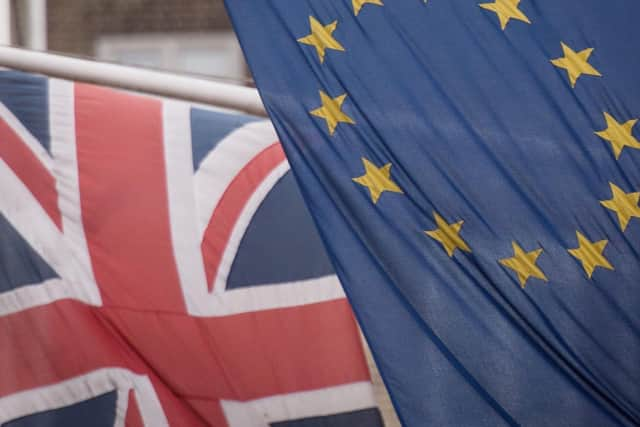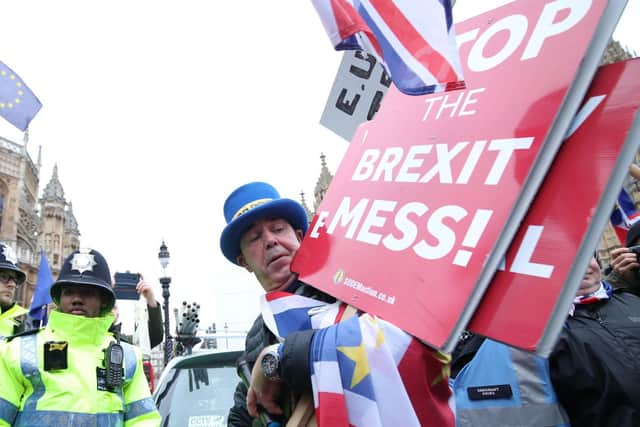The UK's leaving the EU could help it weather the crisis than member states - Rashmi Dube
Italy spoke first saying “if any one of us had left the EU people would have simply laughed at us, … of course we think the UK are crazy for making this decision and cannot understand why they have done this …. Anyway it is something that can never be conceived from any other EU country.”
Fast forward five months and the impact of Covid-19 globally and particularly early doors to Italy has changed everything. According to a European Parliament poll in late 2019, “only 37 per cent of Italians saw membership of the EU as ‘a good thing’, and 17 per cent said it was ‘a bad thing’”.
Advertisement
Hide AdAdvertisement
Hide AdThe only time the EU had previously seen such negativity was from the UK. There has been a shift in public sentiment in Italy; a growing discontent as a result of the country’s Covid-19 struggle. I have already written how the coronavirus is forcing us to evolve, but is there also going to be a revolution? Is there a future for the European Union past this pandemic? Is the UK now in a stronger bargaining position?


The pandemic could be the golden ticket for the UK’s foreign and trade ministers, providing opportunity for them to lobby and create new relationships with the European countries and create a new federation, or at least persuade some to leave and set up a new system of free trade and open markets between the countries which includes the UK.
Communication and being part of the team not just in principle, but in practical terms is supposed to be at the core of the EU and its membership.
Rome cried for help and all it heard was deafening silence. In addition, there was a plea for medical equipment and countries such as France and Germany banned the export of essential medical equipment to Italy. In contrast, help was found in other countries such as Russia, China and Cuba, which sent medical equipment or teams of doctors to assist. It is no surprise to see why discontent is brewing. The EU subsequently started acting and responding, but we have questioned why it was so late in doing so.
Advertisement
Hide AdAdvertisement
Hide AdThe European Central Bank (ECB) took action to combat the economic impact of the coronavirus by launching a €750bn Pandemic Emergency Purchase Programme, which can be used to buy Italian government bonds, but this was after an initial damning response offering no assistance.


It has taken time (which in this pandemic no one has) but the commission has succeeded in getting member-states to lift bans on the export of medical equipment. But this is also a time for PR: if you don’t communicate loudly your achievements then the discontented voices will simply get louder, and the EU has failed to communicate what it has managed to achieve in the eleventh hour.
But it is not simply one country that is shifting uneasily in their seat. Germany, Austria and the Netherlands are all becoming anxious for different reasons – they have so much more to lose by being part of the team that is the EU. France, Italy and Spain argue that emergency spending to counter the outbreak should be financed jointly with so-called coronabonds. However, the idea of jointly issuing debt doesn’t sit well with others.
In essence, countries that have not done so well previously in financial terms want support from those that have. Given that it is likely that globally we are entering an economic depression, why would you consciously want to increase your debt, unless you agreed you to be a team player of course.
Advertisement
Hide AdAdvertisement
Hide AdWe all want to be at the beginning of change because it gives a stronger leading voice. The future for the EU is now on shaky ground, but for the non-EU members such as the UK, Covid-19 has perhaps provides a silver lining and a space not just for new friends, but old friends to join new free trade relations.